BABISH
recipes
community
livestream
cookware
cookbook
contact
JOIN
RAM-DON INSPIRED BY PARASITE
cook:
1 h 40 min

12,686,077 views Rarely does a dish serve as such a central metaphor for a film's primary conflict: in Parasite, boujee beef sits oppressively atop bargain noodles in the Park family's version of Ram-Don, the way they sit so literally atop others. It was tricky doing this one without spoilers, but I think I managed!
4 servings
US
original
metric
INGREDIENTS
DIRECTIONS
INGREDIENTS

For the Quick Instant Method:

1 packet of Neoguri (store bought)

1 packet of Chapagetti (store bought)

1 piece of Korean Hunu Sirloin (Japanese Kobe is a good substitute, or any fancy steak you’re feeling)
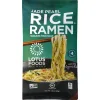
For the Ramen Noodles:

1 cup baking soda

2 tbsp baking soda

½ cup warm water
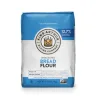
8 ½ oz bread flour (about 2 cups)

240 g all purpose flour

1 oz vital wheat gluten (about 1/4 cup)

For the Udon Noodles:

250 grams all purpose flour

250 grams bread flour

250 grams water

½ tsp kosher salt

For the Korean Dashi:

8 cups water

6 medium pieces kelp

Dried anchovies

For the Jajangmyeon:

2 tbsp Olive Oil

⅓ cup sweet black bean paste
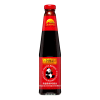
1 tbsp Oyster Sauce

2 tbsp Vegetable Oil

6 oz diced pork loin
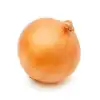
½ yellow onion, chopped

½ zucchini, chopped
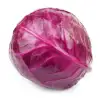
4 shredded cabbage

1 - 2 inches fresh ginger, grated

1 tbsp mirin

1 cup dashi broth (you can use chicken broth or water too)

¼ cup water

1 tbsp cornstarch

For the Jjamppong:

2 tbsp vegetable oil
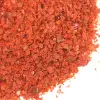
3 tbsp Korean chili flakes (Gochugaru)

4 scallions

Fresh ginger

2 cloves garlic

½ yellow onion, chopped

½ zucchini, thinly sliced

4 oz shredded cabbage

4 shiitake mushrooms, sliced

4 cups dashi broth

Seafood of choice (I used shrimp and mussels)

Kosher salt

Freshly ground black pepper
TOOLS
Babish Mixing Bowl
Babish Rolling Pin
Babish Cutting Board
Babish Saute Pan
Babish Everyday Pan
Babish Stock Pot
Babish Measusring Cups and Spoons set
Babish Glass Bowls
Babish "Clef" Knife
Babish Chef's Knife
Babish Frying Pan
Babish Santoku Knife
DIRECTIONS
1.
For the Quick Instant Pack Method
1.
Trim off some of the excess fat from the steak of your choice and cube it into bite-sized pieces. Sear the cubes in a saucepan with hot oil.

1 piece of Korean Hunu Sirloin (Japanese Kobe is a good substitute, or any fancy steak you’re feeling)
2.
In some shallow boiling water, place both sets of packaged noodles along with the spicy broth packets and frozen vegetable packets.

1 packet of Neoguri (store bought)

1 packet of Chapagetti (store bought)
3.
After about 4 minutes, both the noodles and beef should be finished cooking. Drain all but ⅓ cup of the cooking broth and add the chapagetti’s packet of vegetable oil and bean sauce. Mix to combine, it will turn a muddy brown color.
4.
Add the beef to the noodles and stir. Serve and enjoy!
5.
For the Ramen Noodles
1.
Start by baking baking soda in a 250℉ oven for 1 hour. Combine the baked baking soda with water. Stir to dissolve completely.

2 tbsp baking soda

4 tbsp warm water

1 cup baking soda
2.
In a mixing bowl, add all-purpose flour along with the alkaline water mixture you just created. Stir to combine with a large wooden spoon. You want to make a shaggy but cohesive ball of dough. If needed, add a little extra water.

240 g all purpose flour
3.
Once it’s combined, pat it into a disc, dust it with bread flour, put into a bowl and cover. Let it rest for 30 minutes.
4.
Once it has rested for 30 minutes, remove from bowl and lightly dust it with flour. Roll the dough out and then fold into thirds, and then into thirds again. Roll out just a little bit and then wrap in plastic wrap and let rest for another 30 minutes.
5.
Attach your pasta attachment to your stand mixer. Remove dough from plastic wrap and dust with bread flour. Give it one pass through on your pasta roller’s widest setting. Fold into thirds, rotate 90° and pass it through again on your pasta press at about 2 or 3. If it seems too long, give it a chop in half.
6.
Dust with bread flour again, before passing through your noodle cutter attachment. Add some more bread flour and twist into little nests on a rimmed baking sheet that’s also been dusted with bread flour.
7.
For the Udon Noodles
1.
Start by weighing out all-purpose flour and bread flour. Add kosher salt to water. Stir and add to the flour. This gives the dough a hydration of 50%.

250 grams all purpose flour

250 grams bread flour

250 grams water

½ tsp kosher salt
2.
Mix that around with your fingers until a shaggy ball of dough forms. Turn it out on an unfloured countertop and knead it until semi-smooth but a little lumpy.
3.
Place into a heavy duty ziploc bag and squeeze out all of the air before sealing shut. Optionally, you can knead the dough on top of a table with your feet. You can also simply knead with your hands until the dough is flattened into a large disc. Fold into fours, place back into the bag and flatten again. Repeat this 5x. Let rest at room temperature for 1-3 hours.
4.
Generously flour the dough and countertop and roll it out using a rolling pin until the dough has reached a thickness of about 3mm.
5.
For slicing, place the dough on top of itself like an accordion. Make sure not to press down on the folds and that the folds don’t overlap. With a very sharp knife, cut into thin udon noodle sizes.
6.
Once cut, unfurl the noodles and dust them with a generous amount of flour (cornstarch or potato starch) and twist them into nests.
7.
For the Korean Dashi
1.
In a large pot, pour in water. Add medium pieces of dried kelp and let them soak for 1 hour. Afterwards, add a handful of dried anchovies.

8 cups water

6 medium pieces kelp

handful Dried anchovies
2.
Bring to a roaring simmer and hold it there for about 10 minutes before draining and setting aside.
3.
For the Jjangmyeon
1.
In a small saute pan, add olive oil, sweet black bean paste, and oyster sauce. Fry together for about 2 minutes and set aside.

2 tbsp Olive Oil

⅓ cup sweet black bean paste

1 tbsp Oyster Sauce
2.
In a large, high-walled saute pan, heat vegetable oil over medium-high heat until almost smoking. Add diced pork loin and saute for 2-3 minutes. Add chopped zucchini, chopped yellow onion, and shredded cabbage.

2 tbsp Vegetable Oil

6 oz diced pork loin

½ yellow onion, chopped

½ zucchini, chopped

4 shredded cabbage
3.
Saute together for 2-3 minutes, or until the cabbage is just starting to wilt. Grate in fresh ginger. Add mirin and saute for 30 seconds. Add the black bean mixture that you fried earlier. Mix that in until everything is evenly coated, then add in Dashi broth (chicken broth or water work too).

1 - 2 inches fresh ginger, grated

1 tbsp mirin

1 cup dashi broth (you can use chicken broth or water too)
4.
Let that mixture gently simmer for 2-3 minutes then thicken everything by adding water and cornstarch. Mix together, give it a taste, and season to your taste preference with kosher salt. Cover to keep warm.

¼ cup water

1 tbsp cornstarch
5.
Boil ramen noodles for no more than 3 minutes, checking for doneness after 90 seconds. Put noodles into a bowl and top with jajangmyeon.
6.
for the Jjamppong
1.
Heat vegetable oil in a large pot over medium heat. Add Korean chili flakes, thinly sliced white bottoms of scallions, an inch of grated ginger, and grated garlic.

2 tbsp vegetable oil

3 tbsp Korean chili flakes (Gochugaru)

4 scallions

Fresh ginger

2 cloves garlic
2.
Saute this together for 2-3 minutes and then add chopped yellow onion, sliced zucchini, shredded cabbage, and thinly sliced shiitake mushrooms. At this time, add the Udon noodles to boiling water since they take 12 minutes to cook.

½ yellow onion, chopped

½ zucchini, thinly sliced

4 oz shredded cabbage

4 shiitake mushrooms, sliced
3.
Saute for 2-3 more minutes until everything begins to turn soft. Add dashi broth. Cover and bring to a simmer before adding your seafood of choice. Cover and let simmer. Season with salt and pepper to taste.

4 cups dashi broth

Kosher salt

Freshly ground black pepper

Seafood of choice (I used shrimp and mussels)
4.
Take udon noodles out of boiling water when they’re finished and rinse under cold water. Place noodles in a bowl and top with jjamppong.

For the Jjamppong:

For the Udon Noodles:
Unlock this recipe

Welcome to the...
Babish Culinary Universe
Get instant access to hundreds of written recipes, connect with a community eager to share their cooking triumphs and mishaps, and find inspiration for your next meal.
Try it out for a month free, then just $1/month
RELATED RECIPES